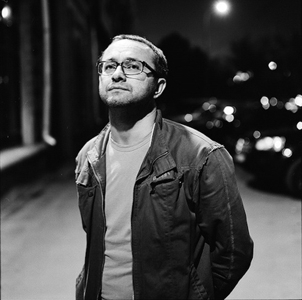"Elena", the new film from Andrei Zvyagintsev, is sensational...
01/20/2012
One of the best reasons to go to any film festival is the thrill of a brilliant but under-promoted movie, something to cheerlead and encourage in its ongoing adventure around the world.
Making a pit-stop at the wonderful Tromsø festival in Norway's Arctic Circle is a sensational Russian drama called Elena, by Andrei Zvyagintsev, who debuted to great acclaim with The Return in 2003.
Somehow, his new film – which I'm not alone in considering superior in every way – still finds itself without firmed-up plans for UK distribution. This is a hopefully rectifiable state of affairs, but a sad one all the same: I hope it doesn't go the way of Maren Ade's lauded German relationship drama Everyone Else, which premiered in 2009, but has still yet to see the light of day in Britain.
Elena has the taut dramatic structure of a Dostoyevsky parable, matched with mesmerising long-take technique, a hushed, disquieting soundscape, and images that jangle in your head for days.
Zvyagintsev's memorable opening shot watches the sun rise on a plush Moscow apartment through the bare branches of a tree outside, on which a single bird nestles, until another one flutters down and joins it. We watch the morning routine of the title character, a late-middle-aged grandmother sleeping apart from her wealthy but difficult second husband Vladimir (Andrey Smirnov), who draws his purse-strings tight and his heart-strings tighter.
Elena's son Sergey (Aleksey Rozin) is an unemployed slob living in cramped surroundings with his wife and two sons, one of whom is in danger of being drafted off to Ossetia, unless the right people can be bribed to get him into college. Elena's gentle pleas to Vladimir, who could easily remedy this situation if he didn't resent it so much, aren't helped by her needling reminders that his own daughter is childless and never bothers to get in touch, at least until a shock heart attack that leaves the question of his inheritance uppermost in everyone's thoughts.
To spoil more of the plot would be criminal, but plot's just the skeleton for this superbly assured filmmaker to hang a whole wardrobe of aesthetic and philosophical ideas on. The Return, pristine and gripping though it was, came bogged down with father-son abstractions and portents that felt taught and obligatory, as if he'd been boning up on his Old Testament with one eye on The Night of the Hunter.
Still, it was nothing if not compositionally breathtaking, and that gift hasn't gone anywhere: every shot here, framed and lit by Zvyagintsev's regular director of photography Mikhail Krichman, draws us cannily into the psychological tensions of the scene, and every cut is timed to heighten and complicate them.
Elena's ambiguous prayers in a church, and an ominous blackout in her son's flat, are scenes freighted with belief in a higher justice that goes beyond superstition, into a Tarkovsky-ish realm of creeping moral terror. We may feel Philip Glass to be an over-familiar composer in our arthouses by now, but the throbbing strains of his Symphony No. 3 work superbly in this context, seeming to follow the heroine about like an implacable exterior conscience.
As for Nadezhda Markina, in the lead role, she's so communicative and detailed you have to keep reminding yourself she's barely speaking, just clueing us in with subtle mastery to Elena's scalp-prickling second thoughts, and quick, darting third ones, and stricken fourth ones.
You may have guessed what's on her mind from this review, but hopefully not what she decides to do about it, and how the consequences she fears lace every subsequent sequence with a floating, metaphysical suspense that suggests a dinner date between Hitchcock and Dreyer.
These will always be influences to conjure with, but there's no guarantee of the magic happening until it very clearly does: that's what makes Elena a film to crow about loudly, and if nothing else one to release, please, surely. Somebody.
Tim Robey
"The Telegraph"
